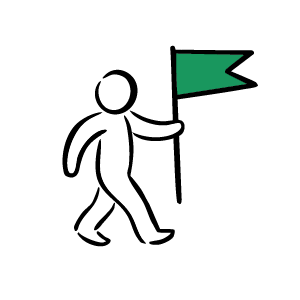Tenth Grade Curriculum
Products are automatically delivered on your schedule. No obligation, modify or cancel your subscription anytime.
- 7 courses included
- 14-day money back guarantee
- Update grade level anytime
Subscribe more students, save more!
10% off
2 students
20% off
3-5 students
25% off
6+ students
Your tenth grader is honing their ability to think critically and analytically, often synthesizing information from various sources and applying it to complex, real-world problems. Tenth graders can choose from several course options for math, science, and social studies. Tenth graders can also choose from 15 electives options to customize their schedule.
Most popular core courses for tenth graders include:
- English 10 - Use essay writing to apply critical thinking through argumentative and informational text analysis
- Geometry - Investigate properties of figures, make conjectures, and prove theorems.
- Chemistry - Explore the composition, properties and changes of matter.
- Survey of World History - Discover major events and turning points of world history from ancient times to the present.
Tenth graders choose from the following elective options:
- Art History I
- Computer Applications - Office 2019
- Concepts in Probability and Statistics
- Contemporary Health
- Economics
- Environmental Science
- Foundations of Personal Wellness
- Healthy Living
- Intro to Art
- Intro to Communications and Speech
- Lifetime Fitness
- Personal Finance
- Psychology
- Sociology
- Strategies for Academic Success
Math Alternatives:
- Algebra I
- Geometry
- Algebra II
- Pre-Calculus
- Trigonometry - only one semester
Science Alternatives:
- Biology
- Chemistry
- Physics
Social Studies Alternatives:
- US History I
- Survey of World History
- US History II
- US Government
This outline shows an abridged example of both what your child will learn (the scope) and the order in which the lessons build on each other (the sequence). More detailed lesson plans are available in the parent account. All lesson plans are entirely customizable.
English 10
1. Stories from Around the World
- Explore international folktales and legends
- Compare narrative structures across cultures
- Analyze character archetypes
2. Life-Changing Journeys
- Interpret personal narratives and memoirs
- Identify key themes in transformative experiences
- Practice narrative writing techniques
3. Sugar Changed the World
- Investigate informational texts
- Evaluate the relationship between economy and culture
- Understand historical perspectives
4. The Power of Humor
- Analyze humor in literary and media texts
- Explore satire and parody
- Write and revise humorous narratives
5. Animal Farm
- Read and analyze George Orwell's allegory
- Study persuasive techniques and propaganda
- Draw connections to historical revolutions
6. The Human Experience
- Examine memoirs, interviews, and essays
- Evaluate how authors depict universal themes
- Reflect through personal writing
7. Striving for Equality
- Study speeches and historical documents
- Analyze rhetorical strategies
- Write argumentative essays
8. The Language of Leaders
- Analyze language in leadership and social movements
- Interpret tone, style, and audience impact
- Compose persuasive speeches
9.The Tragedy of Julius Caesar
-Causal relationships and drawing conclusions
-Monologues and thematic development
Geometry
1. Foundations of Euclidean Geometry
- Euclidean Geometry
- Defining Terms
- Measuring Length and Angles
- Introduction to Proof
- Linear Pairs and Vertical Angles
- Complementary and Supplementary Angles
2. Geometric Transformations
- Introduction to Transformations
- Reflections
- Translations
- Rotations
- Congruent Figures
- Transformations in the Coordinate Plane
3. Angles and Lines
- Parallel Lines and Transversals
- Angles Formed by Transversals
- Proving Lines are Parallel
- Slopes and Parallel and Perpendicular Lines
4. Triangles
- Classifying Triangles
- Triangle Sum Theorem
- Exterior Angle Theorem
- Inequalities in a Triangle
5. Triangle Congruence
- Triangle Congruence Postulates
- Using Congruent Triangles
- Proving Corresponding Parts of Congruent Triangles
6. Similarity Transformations
- Ratios and Proportions
- Similar Figures
- Proving Similar Triangles
7. Right Triangle Relationships and Trigonometry
- Pythagorean Theorem
- Special Right Triangles
- Trigonometric Ratios
- Using Trig Ratios
- Angles of Elevation and Depression
8. Quadrilaterals and Coordinate Algebra
- Properties of Parallelograms
- Proving Quadrilaterals are Parallelograms
- Coordinate Proof with Quadrilaterals
9. Circles
- Parts of Circles
- Angle Measures in Circles
- Segment Relationships in Circles
- Equations of Circles
10. Geometric Modeling in Two Dimensions
- Area of Triangles and Parallelograms
- Perimeter and Area of Rhombi, Trapezoids, and Kites
- Angle Measures of Polygons
- Area of Regular Polygons
- Area of Composite Figures
- Density and Design Problems
11. Geometric Modeling in Three Dimensions
- Three-Dimensional Figures and Cross Sections
- Volume of Prisms
- Volume of Pyramids
- Volume of Cylinders
- Volume of Cones and Spheres
12. Applications of Probability
- Basic Probability
- Compound Events
- Probability Distributions
- Expected Value
- Geometric Probability
Chemistry
1. Matter
- Changes in Matter
- Lab: Physical and Chemical Changes
- Elements, Compounds, and Mixtures
- Mixtures and Solutions
- Solutions and Solubility
- Lab: Solubility
2. Atoms and the Periodic Table
- The Structure of the Atom
- The Historical Development of Atomic Theory
- The Modern Atomic Theory
- Atomic Numbers and Electron Configurations
- The History and Arrangement of the Periodic Table
- Electrons and the Periodic Table
- Periodic Trends
3. Chemical Bonding
- Types of Chemical Bonds
- Ionic Bonding
- Nomenclature of Ionic Compounds
- Metallic Bonding
- Covalent Bonding
- Nomenclature of Covalent Compounds
- Lab: Ionic and Covalent Bonds
- Intermolecular Forces
4. Chemical Reactions
- Evidence of Chemical Reactions
- Writing and Balancing Chemical Equations
- Types of Reactions
- Lab: Types of Reactions
- Oxidation-Reduction
- Balancing Oxidation-Reduction Equations
- Reaction Rate
- Lab: Reaction Rate
- Catalysts
- Reversible Reactions and Equilibrium
5. Stoichiometry
- Scientific Notation and Significant Figures
- Dimensional Analysis
- Molar Masses
- Introduction to Stoichiometry
- Stoichiometric Calculations
- Limiting Reactant and Percent Yield
- Measures of Concentration: Molarity
6. States of Matter
- Gases
- Liquids
- Solids and Plasmas
- Phase Changes
- Gas Laws
- Lab: Charles's Law
- Lab: Boyle's Law
- The Ideal Gas Law
7. Thermodynamics
- Energy
- Heat
- Calorimetry
- Lab: Calorimetry and Specific Heat
- Thermochemical Equations
- Enthalpy and Phase Changes
- Enthalpy of Reaction
- Lab: Enthalpy
- Enthalpy, Entropy, and Free Energy
8. Acids and Bases
- Properties of Acids and Bases
- Arrhenius, Bronsted-Lowry, and Lewis Acids and Bases
- pH
- Lab: Measuring pH
- Neutralization Reactions
- Titration Reactions
- Lab: Titration
9. Organic Chemistry
- Organic Compounds
- Properties and Uses of Saturated Hydrocarbons
- Properties and Uses of Unsaturated Hydrocarbons
- Functional Groups
- Organic Reactions
10. Nuclear Chemistry
- The Nucleus
- Types of Radioactive Decay
- Balancing Nuclear Reactions
- Half-Life
- Lab: Half-Life
World History
1. Early Peoples and Civilizations
- Studying History
- Human Origins and the Neolithic Revolution
- The Fertile Crescent
- Phoenicia, Assyria, and Persia
- Early Egypt
- Egyptian Culture
- Judaism
- The Rise of China
- Indian Dynasties
- Hinduism and Buddhism
2. Ancient Greece and Ancient Rome
- Early Greece
- Athens and Sparta
- Greece's Golden Age
- Alexander's Empire
- The Republic of Rome
- Roman Civilization
- Christianity
- The Fall of the Roman Empire
- Writing Workshop: Mandatory Voting Legislation
3. Eastern Culture and Civilization
- The Byzantine Empire
- Islam
- Spread of Islam
- Ottoman and Mughal Empires
- East and West African Civilizations
- Imperial China
- Mongol Empire
- Ming Dynasty
- Early Japanese and Korean Civilizations
- Russia and Eastern Europe
4. Medieval Europe
- Early Middle Ages
- Feudalism
- Life in the Early Middle Ages
- Art and Culture in Medieval Europe
- Church Authority in Europe
- Government in England
- Impact of the Crusades
- Challenges in Late Medieval Times
5. The Renaissance and the Reformation
- The Renaissance
- Literature and Philosophy of the Renaissance
- Artistic Achievements of the Renaissance
- The Northern Renaissance
- The Protestant Reformation
- The Counter-Reformation
6. Exploration, Colonization, and Conquest
- Civilizations in North and South America
- Voyages of Exploration
- Conquest of the Americas
- Three Worlds Meet
- The Struggle for North America
7. Absolutism and the Rising Tide of Revolution
- Absolute Monarchy in Europe
- The Glorious Revolution
- The Scientific Revolution
- The Enlightenment
- The American Revolution
- The French Revolution Begins
- The Reign of Terror
- Napoleon's Rise and Fall
8. Nationalism and Industrialism
- Age of Revolutions
- Rise of the Nation-State
- Latin American Revolutions
- The Industrial Age
- The Growth of Cities
- Impact of the Industrial Age
- Age of Reform
- New Economic Theories
9. Imperialism and the Great War
- The New Imperialism
- Spheres of Influence in Muslim Lands
- India under British Rule
- Imperialism in East Asia
- The Rise of Modern Japan
- Imperialism in Africa
- World War I Begins
- A New Kind of War
- World War I Ends
10. The Interwar Years and World War II
- Revolution in Russia
- Cultural and Intellectual Trends
- Global Economic Crisis
- Authoritarianism, Fascism, and Dictators
- Rise of Hitler
- WWII Begins
- Japan's Pacific Campaign
- The Holocaust
- Victory for the Allies
11. Communism and the Cold War
- Stalin and the Soviet Union
- Communism in China
- Origins of the Cold War
- Cold War at Its Height
- The Cold War around the World
- End of the Cold War
- Collapse of Communism
- European Union
- Modernization in China
12. Decolonization and Independence
- Indian Independence
- Challenges of Independence in Asia
- Decolonization in Africa
- South Africa and Apartheid
- Latin American Reform
- Challenges in South America
- Israel
- Nationalism in the Middle East
- Conflict in the Middle East
13. Modern Issues in a Global Society
- International Organizations
- Terrorism
- Ethnic and Religious Conflict
- Genocide
- Women's Rights
- Technology and the Environment
- Global Economy























